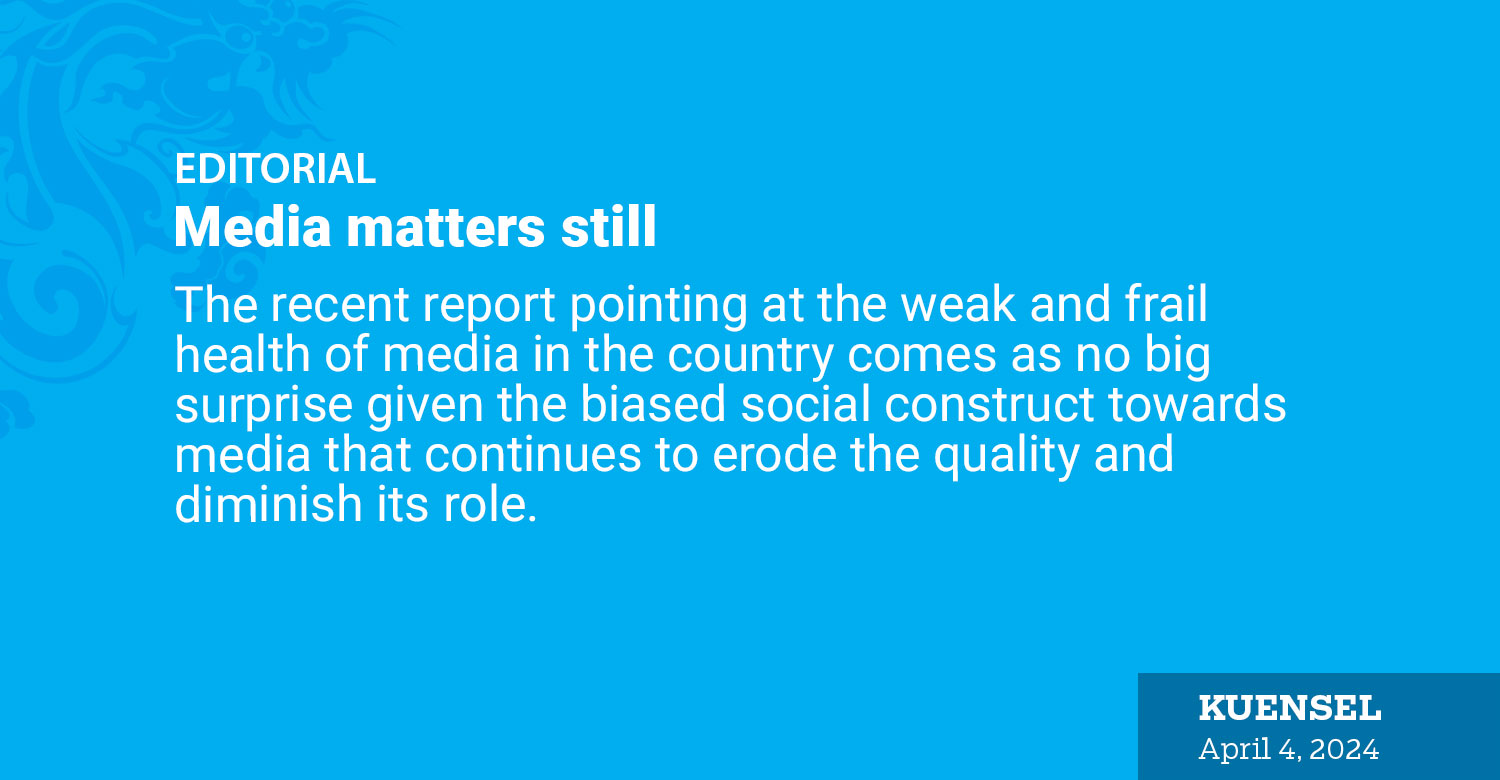The recent report pointing at the weak and frail health of media in the country comes as no big surprise given the biased social construct towards media that continues to erode the quality and diminish its role.
Not too long ago, a district office had the door of a reporter’s office sealed. A group of inflamed (and intoxicated) community members came looking for a reporter who had written about missing bones (kangdung) from buried bodies. Another group of community members lashed out at the reporter who had brought them shame and embarrassment by writing about the 119 fatherless children who could not be registered in the district census records. The list goes on.
Complaints, criticisms, threats, abuses, victimisations, and even boycotts – are the norm that Bhutan’s journalists take on the stride as they go along to fulfill the mandate of informing the nation bestowed upon by His Majesty The Fourth Druk Gyalpo through a Royal Decree issued in October 1992. The Constitution of Bhutan has also enshrined in its Article 7 section 2 and 3 guaranteeing freedom of speech, opinion, expression, and the right to information.
But fulfilling the Royal Decree and the Constitutional mandate is at risk of being derailed by public institutions framing rules to curtail information to the public, whereas the public excitement and demand for information continue to soar.
It must dawn on public service stakeholders that information is instrumental in gaining the confidence, support, and collaboration of the public. It is the legitimate way of being accountable to the public. Media brings to light and disseminates information to the public, propagating accountability, shining light on where the society’s problems lie, even if some choose to look the other way.
Media experts say, as the ‘fourth estate’s, the media talk truth to the other three branches, lest they run the risk of believing their own nonsense. Besides the restrictive space, and a diminished role, the media in Bhutan also has to struggle with limited human and capital resources. The high attrition rate, just as everywhere else in the country, continues to plague the editorial team. While the small market, and shared sources, had the revenue trickling as little as the news information itself.
On the flipside, lethargy and arm-chair reporting will not guarantee the confidence of the news source, or enable access to information. To begin with, journalists will also have to stop making errors, while the competition for readership and revenue must not compromise editorial standards and journalistic ethics. Media should gain the confidence of the public like any other institution.
Writing is not easy, but lacking information and facts make it more difficult. If people’s participation and engagement in decision making as a collective responsibility in nation-building is deemed necessary, then the media must be allowed to carry out its responsibility without any reservation.


